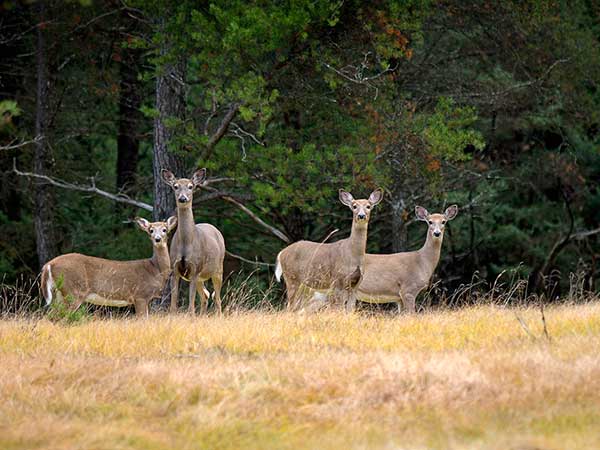- Details
(Provided by Indiana DNR)
The 2014 early migratory bird season dates have been submitted to the U.S. Fish and Wildlife Service by the Indiana DNR as listed below.
As in other years, these dates are not final until the USFWS approves them, which typically happens by the end of August. The season dates fall within the framework provided by USFWS, so no changes are anticipated. A later release will notify you of approval or change.
Indianaís requested seasons have never been altered by USFWS after submission; however, there is always the slight possibility of change. Therefore, the dates below should not be interpreted as being final.
- Details
(Provided by the Indiana DNR)
The Indiana DNR is seeking qualified applicants to become Conservation Officers.
Indiana Conservation Officers work in the DNRís Law Enforcement division. Founded in 1911, it is Indiana's oldest state law enforcement agency. Conservation Officers enforce all state laws but concentrate their efforts on laws affecting natural resources, state properties, and recreational activities such as boating, snowmobiles, and all-terrain vehicles.
- Details
(Provided by Indiana DNR)
 Bonus antlerless quotas reduced in 19 Indiana counties.Bonus antlerless county quotas have been set for the 2014 Indiana deer hunting season, with quotas being reduced in 19 counties and increased in four.
Bonus antlerless quotas reduced in 19 Indiana counties.Bonus antlerless county quotas have been set for the 2014 Indiana deer hunting season, with quotas being reduced in 19 counties and increased in four.
In Michiana, those counties that will see a reduction from eight to four include St. Joseph, Marshall, Fulton, Porter, and DeKalb.
Elsewhere in northern Indiana, the follow quotas have been set with the former number show in parenthesis: Newton 3 (4), Benton 1 (2), Cass 4 (3), Howard 3 (8), Warren 4 (8) and Tippecanoe 4 (8).
Four southern Indiana counties saw an increase from four to eight, including Monroe, Bartholomew, Lawrence and Jackson.
- Details
(Provided by Indiana DNR)
The Indiana DNR has introduced an innovative program to help communities alleviate their urban deer conflicts.
The Urban Deer Hunting Access Program was designed to assist communities experiencing problems with overabundant deer to manage those deer through hunting. Communities will be eligible to apply for funding to open public land for access by licensed deer hunters to resolve documented conflicts.
- Details
(Provided by GLFC)
The Great Lakes Fishery Commission (GLFC) honored Indiana's Chief of Fisheries William James last week for his dedicated service as a member of the Commission. James, who served as a member of the bi-national agency for six years, recently retired from the Commission. His fellow Commissioners, Commission secretariat staff, and colleagues from throughout the Great Lakes basin joined together to recognize career-long commitment to the Great Lakes.
The Great Lakes Fishery Commission is an international organization established by the United States and Canada through the 1954 Convention on Great Lakes Fisheries. The Commission has the responsibility to coordinate fisheries research, control the invasive sea lamprey, and facilitate implementation of A Joint Strategic Plan for Management of Great Lakes Fisheries, a provincial, state, and tribal fisheries management agreement for the Great Lakes. Members from the United States are appointed by the President and members from Canada are appointed by Privy Council.


